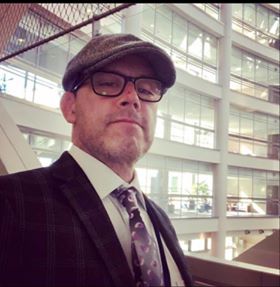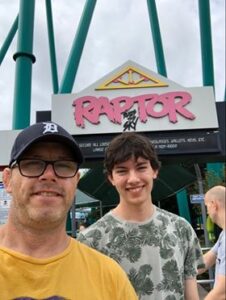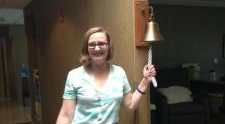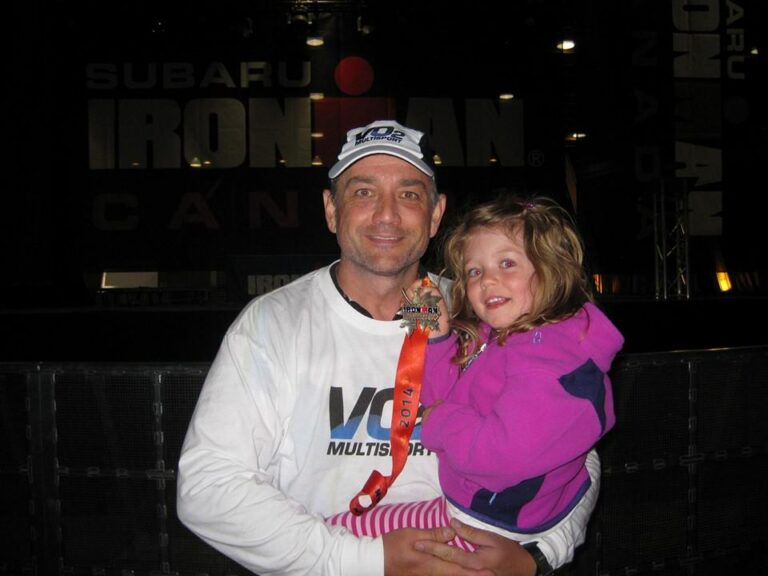
Note about Anal Cancer: Though anal cancer is different from colorectal cancer in the type of cancer (pathology and location) and drugs to treat it, these patients find common ground and support within the colorectal cancer community. It’s one of those cancers nobody wants to talk about, yet anyone can be at risk. Along with the stigma, the location of anal cancer means the surgeries, radiation treatments, and side effects are very similar to those experienced by rectal cancer patients.
Editor’s Note: COVID-19 and treatment in the U.S. has had a huge impact on Dean, including mandatory 14-day quarantine every time he returns to Canada from treatment in the United States, only for him to return to the U.S. for more treatment every 13 days. Read his story from the CBC.
After experiencing unexplained symptoms when using the bathroom, Dean Nixon found himself at his doctor asking for help with the pain and discomfort he experienced when using the bathroom and participating in everyday activities. Like so many young adults eventually diagnosed with colon or rectal cancer, Dean was told he had internal hemorrhoids. Upon further examination, he was finally diagnosed with anal cancer.
 As a Canadian, Dean started his treatment in Windsor, Ontario, just across the border from Detroit – a key connection that would play an important part in Dean’s future treatment at the National Institutes of Health (NIH) in Bethesda, Maryland.
As a Canadian, Dean started his treatment in Windsor, Ontario, just across the border from Detroit – a key connection that would play an important part in Dean’s future treatment at the National Institutes of Health (NIH) in Bethesda, Maryland.
In Canada, Dean followed the standard treatment protocal for anal cancer: 6 weeks of radiation and 2 rounds of chemo. His first scan following treatment revealed spots on his liver. It was clear to Dean that he’d need to take next steps – ideally securing a clinical trial. Unfortunately, he received mixed messages from his care team, even having a doctor not recommend trials. Dean learned how important being your personal advocate is – something he’d later channel into the work he does to help others as a patient advocate, especially fellow Canadians.
Through his own research Dean found an appropriate trial at the NIH. He was first accepted in December 2016. In January 2017, the trial started with harvesting cells from his solid tumors to grow the cell lines in the lab. This enables scientists to continually (and eternally) study Dean’s cancer cells and use them to test potential new treatments. Unfortunately by April, Dean’s cancer had progressed. Though that ended his trial participation, he was immediately offered a spot in a trial he continues to this day.
He has been called the “most prolific responder” to his drug combination after a 40% reduction in tumor size following just 2 doses. And as he’d already contributed tumor tissue during the previous study, scientists at NIH are now able to study Dean’s cancer further and find out why his tumors responded so well. They can use this information to help future anal cancer patients. Fortunately, Dean was able to achieve remission, but it would be short lived with recurrence once he was off treatment.
He’s now back on the trial, and back into remission once again. Dean continues his bi-monthly trips to NIH. His team will keep him in the study for the full year that is outlined by the study requirements. A plan is still in the works for when the one-year study timeline has ended. Like many patients enrolled in clinical trials, Dean faces the uncertainty of what to do when a study ends but he is still responding to the trial drugs.
While Dean makes his trips to Maryland for treatment, he also works as a patient advocate. Having learned many lessons from his own experience as a patient seeking clinical trials, he uses that knowledge to help others looking for trials and not receiving support from their health care team. He spends hours researching and talking with patients, helping them navigate barriers in the Canadian health care system. He heads up the ANALWISE neighborhood in COLONTOWN for patients/survivors of anal cancer. And he takes his advocacy outside of the cancer world, educating everyone in his race horse community about the risks of anal cancer.
Anal Cancer Facts
*91% of anal cancer is HPV related.
*There is a vaccine to prevent HPV available.
*Though there is no standard screening for anal cancer, if you are experiencing any unexplained symptoms you should talk with your provider.
*Anyone who has been sexually active, regardless of sexual orientation, is at risk for HPV-related cancer and should be screened during regular physical exams.
Return to Faces of Blue Age is Not a Factor



